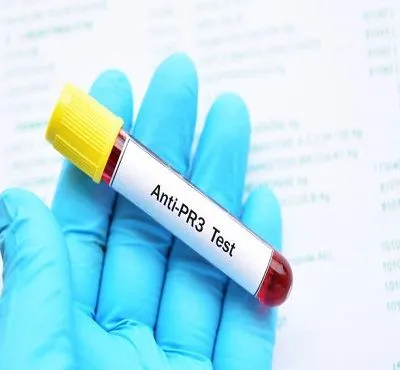We do not request reimbursement of costs
(such as repayment for obtaining medical records)
from veterans nor from people who suffer from multiple sclerosis.
- Call today for a free evaluation
- 1-888-774-7243
Churg-Strauss Syndrome
Churg-Strauss syndrome is a rare disorder characterized by an abnormal clustering of white blood cells and the inflammation of blood vessels. The disorder also causes the development of inflammatory lesions known as granulomas. The inflammation can limit blood flow to critical organs and tissue. Most affected individuals have a medical history of allergies, asthma and other pulmonary ailments. Churg-Strauss syndrome, also known as eosinophilic granulomatosis with polyangiitis, affects men and women in equal numbers. The symptoms are typically managed with steroids and other immunosuppressant medications. Depending upon the severity of the syndrome, the incurable disorder may negatively affect your ability to work.
What is Churg-Strauss Syndrome?
 Although the cause of Churg-Strauss syndrome is unknown, it is likely the result of an overactive immune system. The disorder can produce a variety of signs and symptoms, which typically appear between the ages of 30 and 50. While some patients only have mild symptoms, others can experience severe, life-threatening complications. The syndrome has three stages of development that can occur in any order. They are known as the allergic, eosinophilic and vasculitic stages. Sufferers may not experience all three levels of the syndrome if the ailment is detected and treated early. Pulmonary abnormalities can precede a diagnosis of Churg-Strauss syndrome by a few months or up to several decades.
Although the cause of Churg-Strauss syndrome is unknown, it is likely the result of an overactive immune system. The disorder can produce a variety of signs and symptoms, which typically appear between the ages of 30 and 50. While some patients only have mild symptoms, others can experience severe, life-threatening complications. The syndrome has three stages of development that can occur in any order. They are known as the allergic, eosinophilic and vasculitic stages. Sufferers may not experience all three levels of the syndrome if the ailment is detected and treated early. Pulmonary abnormalities can precede a diagnosis of Churg-Strauss syndrome by a few months or up to several decades.
During the allergic stage, affected individuals may experience asthma and hay fever as well as sinus pain and inflammation. The onset of the syndrome can worsen the symptoms of preexisting ailments. The eosinophilic stage is characterized by an abnormally high percentage of white blood cells, which can cause serious damage to blood vessels and tissue. Signs during the eosinophilic stage depend upon which organs are affected. They may include fever, joint pain and night sweats as well as fatigue, abdominal pain and bleeding. The vasculitic stage is characterized by symptoms like rashes, unintentional weight loss and swollen lymph nodes as well as a generalized feeling of fatigue, chest pains and shortness of breath. You may also experience severe pain and numbness in your hands and feet. Advanced symptoms include severe abdominal pain, diarrhea, nausea and vomiting. The disorder may also cause neurological problems.
The condition is diagnosed based on a thorough examination and the results of various diagnostic tests, including x-rays, CT scans and biopsies. Doctors usually prescribe immunosuppressant medications to manage the symptoms, which can vary widely in presentation, duration and severity. In advanced stages, the disease and its complications may impair your ability to work because the symptoms may not respond favorably to treatment.
Getting SSDI for Churg-Strauss Syndrome
If you or a loved one suffers from Churg-Strauss syndrome, you may be eligible to receive Social Security Disability Insurance (SSDI) to help with your financial obligations. The syndrome is listed in the SSA Blue Book of qualifying ailments. To qualify for SSDI, the condition must affect two organs or organ systems. One must be at least moderately impacted. The symptoms and complications of the syndrome must also negatively affect your social functioning, the ability to perform tasks associated with normal daily living or the ability to complete work tasks in a timely manner. It is important that your medical records and statements from your attending physician support the diagnosis of Churg-Strauss syndrome. These records should include information regarding your treatment, diagnostic test results and a summary of any hospital stays. Qualifying for SSDI will also depend upon your work history as well as the mental and physical requirements of your vocation.
To discuss SSD and SSI claims or appeals, please call (215) 464-7200 or contact our disability lawyers in houston using the form below.
The initial consultation is free, and we never charge a fee until we win your case.
For a Free Evaluation
Monday : 9am–5pm
Tuesday : 9am–5pm
Wednesday : 9am–5pm
Thursday : 9am–5pm
Friday : 9am–5pm
Saturday : Closed
Sunday :Closed

